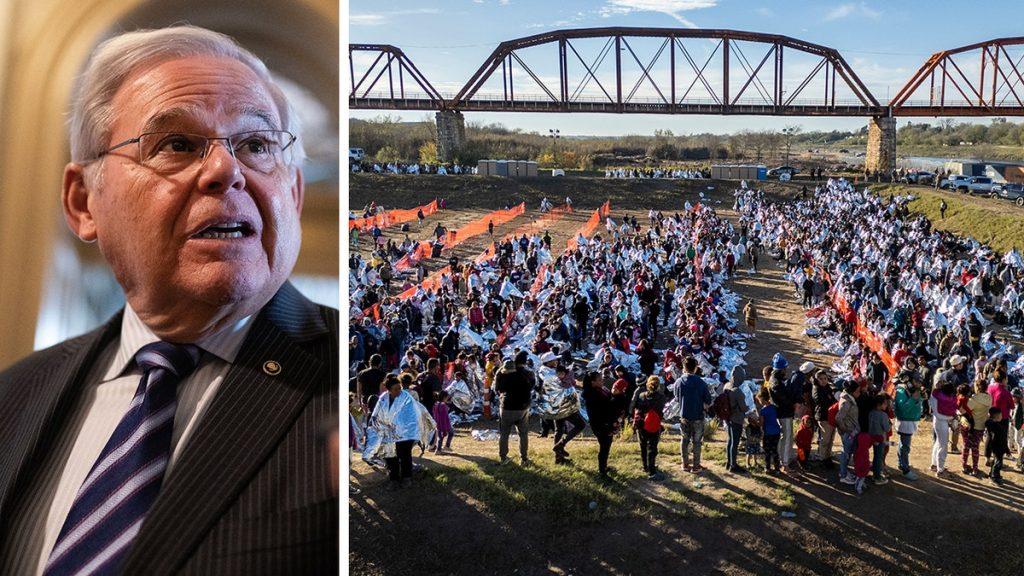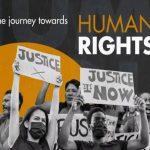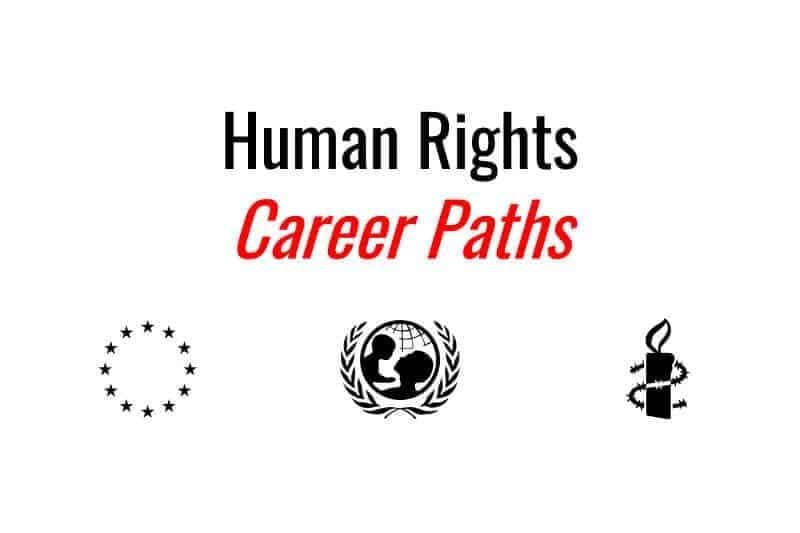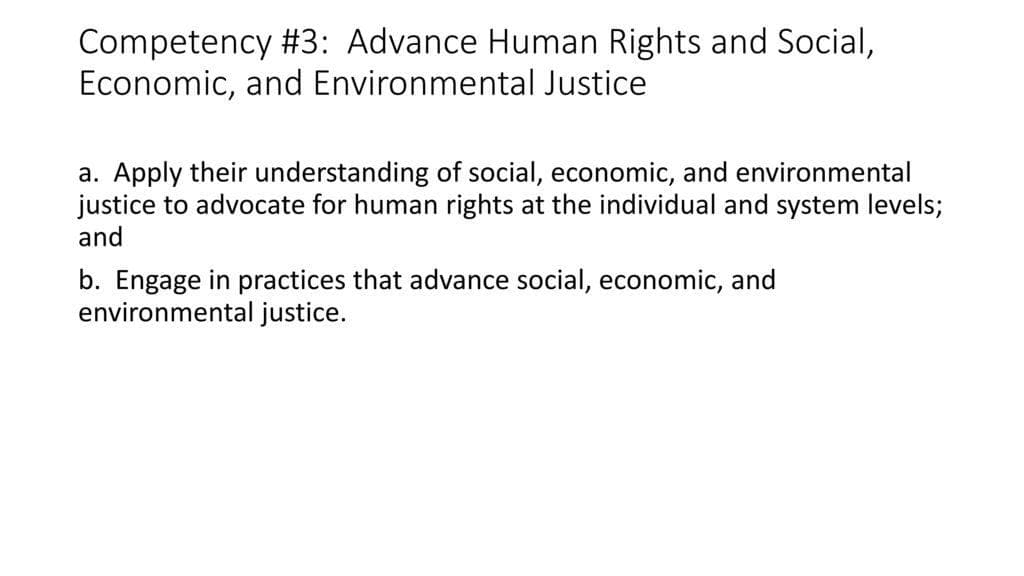The topic I’m delving into today revolves around the crucial yet often controversial, border network for human rights. As we explore deeper, you’ll discover its origins, key activities, and the impact it has left on the society.
Let’s flip through some significant highlights in this discussion to truly understand the reach and influence of such a network for human rights at our borders.
- Origins of the Border Network: Understanding the foundation and vision behind the network’s initiation.
- Fernando Garcia’s Role: A look into how this enabler revolutionized human rights advocacy.
- Framework for Advocacy: Analysing the establishment and strengthening of advocacy guidelines.
- Key Activities: A deep dive into the major actions undertaken by the border network for human rights.
- Nonprofit Engagement: How distributing GuideStar Pro reports helped in strengthening alliances and furthering their cause.
- Transition and Impact: An overview of the changes brought about by this network and their societal influence at large.
These cardinal points make it evident that the border network for human rights holds a paramount position in instigating much-needed conversations.
Contents
- Origins of the Border Network for Human Rights
- Fernando Garcia: Enabler of Human Rights
- Establishing the Framework for Advocacy
- Key Activities of Border Network for Human Rights
- WITNESS’ Feature: Highlighting Partnerships
- Allegations of Embezzlement: An Examination
- Response and Impact of Allegations
- What do such allegations typically imply?
- Where do we often see such incidents?
- How significant is the role of power dynamics in these cases?
- What effect do these allegations have on both parties involved?
- What resources are available for those affected by such incidents?
- What relief can be expected from investigations into these allegations?
- Border Advocacy Groups: The Essential Network
- Connecting with Nonprofit Leaders: Strengthening Alliances
- Nonprofit Engagement: Distributing GuideStar Pro Reports
- Transition and Impact: Border Network for Human Rights
- Striving for a Comprehensive Immigration Policy
- Exploring Human Rights Network
A Deeper Look Into The Border Network For Human Rights
Garcia’s contribution to human rights has been remarkable, making him a respected figure in this field.
The well-defined framework for advocacy provided by the border network has become a beacon for many organizations around the globe.
Moreover, their extensive work and strategic alliances via nonprofit engagement have made a substantial impact on society, proving that their efforts towards bettering human rights are indeed commendable.
Reflecting on the network’s transition over the years, it’s clear their influence continues to spread, fostering a safer and more empathetic environment at borders across the world.
Origins of the Border Network for Human Rights

The roots of the Border Network for Human Rights trace back to early 1990s El Paso. A fervent group of local activists and attorneys formed the Border Rights Coalition, tirelessly documenting allegations of abuse by the Border Patrol.
Key to this grassroots organization’s evolution was hiring Fernando Garcia as executive director. His dynamic leadership steered the coalition’s transformation into a potent human rights network.
“The Border Rights Coalition was instrumental in highlighting and combating egregious abuses at our borders.”
This group secured remarkable victories in landmark cases. Two standout instances involve Bowie High School and the tragic 1997 incident involving Esequiel Hernandez Jr, a teenage goatherd fatally wounded by patrolling Marines.
The organization peered into a brighter future in 1998 with the launch of a campaign for Municipal Identification. This action led to overwhelming public support and significant contributions towards this initiative.
A heartwarming development in 2016 was the first Hugs Not Walls event. This emotionally charged gathering saw over 300 families, torn apart by immigration policies, reunite in the middle of Rio Grande.
The fight continued into 2017 with ongoing efforts for a Municipal Identification program. Despite intense resistance, especially from Mayor Dee Margo and subsequent national government administrations, I remain inspired by this indefatigable network that persistently advocates for border rights.
Fernando Garcia: Enabler of Human Rights

As the co-founder and director of the Border Network for Human Rights (BNHR), Fernando Garcia, is a stalwart advocate for human rights, dedicating his life to fighting oppression and poverty.
He sees the borderland as more than a piece of parched land—it’s a place where diverse languages and culture thrive, teeming with an estimated 2.5 million inhabitants.
- BNHR’s Impact: Working in partnership with the Poor People’s Campaign, BNHR focuses on the communities affected by border issues in West Texas and Southern New Mexico.
- The Border: This lively region, encompassing El Paso and Juarez, defies stereotypes. The communities on either side are not divided but rather interconnected and mutually dependent.
- Binational Communities: These areas present a unique blend of cultures, languages, and economies—an amalgamation that transcends geographic boundaries and political divisions.
Few people understand that swathes of poverty exist within these regions. What are referred to as ‘colonias’ are far from affluent suburbs; they consist of impoverished immigrant communities living under tough conditions.
We’re talking about houses without electricity or running water. Yes, this is America too; it’s just another face of it—the face of poverty. Thousands live under these harsh realities every day.
Adding to this distressing situation is the militarization of these civilian spaces. Bodies like the Border Patrol act less like a police force and more like an army, dealing with imagined threats rather than protecting citizens.
- Poverty And Militarization: The militarization, along with rampant poverty, has had a severe impact on Garcia’s understanding of the border situation, prompting him to work towards making these communities visible.
- Human Rights Over Immigrant Rights: He believes that human rights bridge the discrimination gap between different communities irrespective of economic or political status. He fights for equal dignity and rights for all.
BNHR strives to forefront the voices of immigrants, underpinning their cause with the broader perspective of human rights. It’s not about immigrant rights—it’s about everyone’s rights. Garcia believes in the universality of human rights—healthcare, housing, education—to extend uniformly to all communities, beyond immigration status.
This belief led BNHR to join forces with the contemporary Poor People’s Campaign. Their common fight is against a system that breeds poverty and exclusion. They believe in equality and universal rights for all, regardless of socioeconomic background.
Establishing the Framework for Advocacy

The establishment of a potent advocacy framework is crucial for instigating social change. These frameworks serve as a roadmap, detailing how the journey to effectuate change unfolds.
Also known as theories of change, these frameworks are visionary representations of anticipated changes over time, informing strategic planning.
However, existing methods for articulating these theories often come under criticism. They are perceived as being too linear, decontextualized, and rigid.
In the fluid arena of advocacy, strategies need to be adaptable, responding to shifting political contexts or unanticipated ineffectiveness of tactics. As such, the traditional linear approach can be limiting.
Welcome then the Advocacy Strategy Framework. More than a simple tool, it provides a holistic and flexible approach to envisioning change, perfect for public policy advocacy strategies.
Unlike traditional tools which enforce linear thinking, this Framework is dynamic and adaptable. It provides a starting point rather than an empty slate, nurturing innovation and strategic thinking.
It encourages defining target audiences and their transformation pathway. It prompts consideration of various tactics and interim outcomes that build towards the ultimate goal.
Moreover, its inclusiveness facilitates concerted efforts among like-minded advocates or opposition. Therefore, it transcends the individualistic approach often adopted in isolationist strategies.
This framework is truly revolutionary in its adaptability and inclusivity, offering immense advantages to both advocates and funders alike in their pursuit of meaningful social change.
Key Activities of Border Network for Human Rights

The Border Network for Human Rights (BNHR) is committed to a handful of primary missions.
Primarily, BNHR works to protect the rights of immigrants on the U.S.-Mexico border.
- Promoting legal awareness, BNHR ensures immigrants understand their human rights under U.S. law.
- Activism and advocacy form integral parts of BNHR’s work. They actively lobby for migrants’ rights and justice.
- Educational service, including workshops and training sessions, help immigrants to navigate complex immigration rules.
- Building community networks is another key strength of BNHR. They create spaces for sharing experiences and mutual support among border communities.
In addition to its primary missions, BNHR routinely responds to ongoing crises.
Recent years have seen the organization spring into action in response to the ‘Remain in Mexico’ policy and other stringent measures imposed on border crossings.
The organization’s timely response to these challenges demonstrates its commitment to migrant welfare and human rights advocacy.
Moving forward, the Border Network for Human Rights will continue to be a beacon of hope for those navigating the complexities and hardships of life on the border.
WITNESS’ Feature: Highlighting Partnerships

As an observer, I find WITNESS’ work admirable. They were recipients of the inaugural Peabody Award for Global Impact – a testament to their dedication.
The accolade came on June 9th at the 84th annual Peabody Awards. This marked a significant milestone in recognising the organisation’s commitment towards human rights.
WITNESS utilises emerging media technologies deftly, focusing their efforts on defense of human rights globally. Their efforts set an inspiring example.
- Raising Awareness: WITNESS has been successful in bringing pressing issues to light, leveraging technology as a tool for change.
- Building Partnerships: Collaborations have been key to WITNESS’ success, enabling them to reach wider audiences and have greater impact.
- Tech Savvy: Their proficient use of emergent media platforms sets them apart, allowing for innovative advocacy strategies.
Their commendable work stands as a reminder that every effort counts. WITNESS has been utilizing technology for advocacy and creating partnerships that champion human rights tirelessly.
The Peabody Award is an acknowledgement of such pioneering work. It exemplifies how we can utilize new media to effect change and defend human rights passionately.
Allegations of Embezzlement: An Examination

As an independent observer, I explore a startling case of alleged embezzlement involving Los Angeles City Councilmember Curren Price. The charges are extensive and paint a grim picture.
Embezzlement Charges
The allegations point to five counts of grand theft by embezzlement. It’s claimed that Price had a financial interest in several development projects he voted on. These claims throw his integrity into question.
Raising the stakes, it’s alleged that Price’s wife, Del Richardson Price, received payments exceeding $150,000 from developers, spanning 2019-2021.
Failing at Full Disclosure
There are also accusations against the council member for failure to disclose this income in government financial forms. This oversight could seriously taint his political career.
In addition to the embezzlement charges, Price faces three charges of perjury. These revolve around him not disclosing all payments made to his wife. It’s a dangerous game of withholding crucial information.
Conflict of Interest Charges and Investigation
Two more counts fall under conflict of interest: The councilmember allegedly received city-funded medical insurance premiums for his wife from 2013-2017 despite not being legally married.
The district attorney’s bureau launched an investigation into these serious allegations. The duration of their considerations for the charges remains unknown at this time.
If you’re interested in digging deeper into this story, learn more from Los Angeles Times.
These claims surrounding Price are not isolated. This case follows a series of corruption allegations involving Los Angeles City officials, making him the fourth member to face such charges.
It’s worth noting that despite the public alarm, Price continued to cast votes affecting housing developers and other firms listed as clients for his wife’s consulting company.
The laws in California strictly prohibit public officials from making decisions where they stand to benefit financially. And yet, it seems that these allegations imply Price did precisely that.
While serving as a councilmember since 2013, representing downtown and South Los Angeles, Price won reelection last year for a term ending in 2026. But with these charges looming over him, his future in politics remains uncertain.
Response and Impact of Allegations

What do such allegations typically imply?
Primarily, these allegations hint at a probable investigation into potential sexual misconduct, most commonly reported in academic settings involving power dynamics.
Where do we often see such incidents?
Situations of sexual assault are most frequently brought to light in instances involving a student and an authority figure such as a teacher, coach, or professor.
How significant is the role of power dynamics in these cases?
The presence of power dynamics often plays a crucial role in these cases. The authority figure usually has some form of influence over the student.
What effect do these allegations have on both parties involved?
The allegations tend to cause substantial effects on all involved parties. It can lead to reputational damage, psychological trauma, and possible legal implications.
What resources are available for those affected by such incidents?
A variety of resources exist for those affected. These include counseling services, legal advice, and support groups that aim to help individuals cope.
What relief can be expected from investigations into these allegations?
In the best scenario, thorough investigations can bring justice to victims and appropriate punitive actions against perpetrators. It sets a deterrent for future offenders.
To gain more insights into such issues you can explore this article.
Border Advocacy Groups: The Essential Network

As a keen observer of human rights, I find organizations like Human Rights First intriguing. These entities introduce a vital lens to view pressing issues.
Advocacy and Action
Human Rights First is an independent body that challenges America to uphold its ideals. This commitment reveals the essential role of U.S. leadership in global human rights struggles.
Being neither government nor private sector-dependent, they demand respect for human rights and the rule of law. Their work seeks reform, accountability, and justice when these principles falter.
The Refugees’ Beacon
The Refugee Representation team stands as a beacon for refugees fleeing persecution. By providing representation and partnering with pro bono lawyers, they aid clients in navigating social services and legal protections.
This approach promotes not just American but also international laws that aim for humane treatment of individuals seeking refuge.
Services: Beyond Legal Aid
The range of services provided impresses equally. They cover numerous aspects of immigration assistance from Adjustment of Status to Violence Against Women Act (VAWA) petitions.
Beyond legal services, they offer administrative advocacy, legal orientation programs, legislative advocacy, and referrals to other essential services.
Serving Diverse Populations
The organization serves an impressive diversity of populations including domestic violence victims, LGBTQ+ individuals, torture survivors, and individuals with disabilities. Their reach extends to those without legal immigration status as well.
Their commitment doesn’t stop at language barriers either– they provide interpretation services in multiple languages aside from English such as French and Spanish, proving their dedication to accessibility.
Connecting with Nonprofit Leaders: Strengthening Alliances

I’ve learned that working with nonprofits is a unique experience. It’s vital not to make assumptions about analytics. What works for one may not work for another.
- Customize Data Analysis: It’s crucial to adapt data insights to your nonprofit’s specific needs.
- Staffing Balance: Ensuring the right number of employees is essential; excessive benefits can be counterproductive.
- Overtime Regulations: New rules may require boosting pay for some staff, especially those working over 40 hours weekly.
- Unique Strategies: Simple, targeted strategies often work better than implementing new benefits.
My information highlights the importance of using donor data wisely. Understanding the dynamics of your fundraising efforts can optimize your results
The necessity for balance in employee benefits and staffing level is also important. An overdose of generosity might lead to strife.
Federal regulations on overtime could pose challenges. Many nonprofits may need to increase salaries or accommodate overtime pay from July 1—something worth preparing for.
I believe in adopting simple yet effective strategies to attract workforce. Overwhelming new benefits might not always be the best solution.
Nonprofit Engagement: Distributing GuideStar Pro Reports

GuideStar Pro reports offer access to over two million nonprofit profiles. These serve as a great resource for generating leads and consolidating partnerships.
Harnessing the power of these reports enables a deep dive into nonprofit capabilities and sustainability. It’s a strategic planning catalyst, presenting empowering data.
Using Peer Benchmarks
The availability of peer benchmarks aids in assessing performance. These can guide nonprofits towards a more effective operational model.
Peer benchmarking is an invaluable tool. It offers comparative insights, encouraging organizations to push boundaries and improve efficiency.
Focused Nonprofit Profiles
GuideStar Pro provides comprehensive nonprofit profiles. These profiles offer a great deal of insight into each organization’s mission, operations, and impact.
The clear, concise nature of the information assists users in making informed decisions. It enhances efficiency in their work processes while also contributing to new knowledge acquisition.
Downloadable Search Results
Users can download search results to perform detailed analyzes or develop partnerships. Making this data easily accessible promotes an enriched user experience.
Thus, GuideStar Pro is a tool that truly empowers individuals and groups working within the nonprofit sector to thrive and grow according to their strategic needs.
Transition and Impact: Border Network for Human Rights

Amid a turbulent sociopolitical climate, the Border Network for Human Rights (BNHR) shines as a beacon of hope and resistance.
With roots in El Paso, Texas, its influence extends to Southern New Mexico, achieving an inspiring reach.
The BNHR’s mission targets the core of human rights: education and organization for marginalized communities.
Their goals are threefold: comprehensive immigration reform, responsible border policy, and defense of civil rights.
| Campaigns |
|---|
| Comprehensive Immigration Reform |
| Responsible Border Policy |
| Protection and Promotion of Civil Rights |
| “We Are The 11 Million” Campaign |
| BNHR: Igniting Change One Campaign at a Time |
The above table encapsulates the major campaigns held by the BNHR.
Beyond campaigns, the impactful work of BNHR was evident in 2022 through their dedication to education and organization.
This year marked the launch of the “We Are The 11 Million” campaign, reiterating their demand for holistic immigration reform.
Fernando Garcia, the founding director of BNHR, has been a torchbearer in this fight against human rights infringements for over two decades.
The organization goes beyond advocacy. It works with federal government officials to propel comprehensive immigration reform at policy-level.
Fundamentally, it aims to shape national identity through diversity and inclusion rather than border walls and militarization.
BNHR is not an isolated entity. It’s part of a larger movement that seeks to reform various policies in the United States.
The organization underscores the need to include voices of directly impacted communities in all discussions about immigration and human rights.
This blend of grassroots efforts with capital-level initiatives, is what makes BNHR an organization worth following.
It stands as a testament to the power of education, organization, and participation in promoting and defending human rights.
Striving for a Comprehensive Immigration Policy

Being an active participant in the immigration debate, I’ve observed that consensus is crucial.
The National Immigration Forum exemplifies this principle by fostering relationships across political divides.
They bring diverse perspectives to the table and develop practical, workable measures.
| Key Initiatives | Description | Purpose |
|---|---|---|
| Strengthening Borders | Addressing influx at southern border | Ensures national security, controls migration patterns |
| Maintaining Humanitarian Values | Provides protection to vulnerable groups seeking safety | Promotes acceptance and diversity |
| Creating Citizenship Pathways | Delivers an effective process for eligible people | Makes integration smoother, quicker, more inclusive |
| Promoting Quality of Life & Economic Growth | Safeguards interests of American workers, families and communities | Supports sustainable development, harmony among diverse groups |
| Leading Globally | Demonstrates values of safety, dignity, and opportunity to all | Solidifies global standing, influences international norms positively |
| Source: National Immigration Forum | ||
The table showcases the Forum’s agenda for a comprehensive immigration policy.
With changing migration patterns, proactive policies are essential.
The recent surge at our southern border, for instance, demands firm action.
Yet, balancing security with humanitarian concerns remains paramount.
As the 2024 election nears, voters should educate themselves about varied immigration approaches.
Different candidates indeed have different immigration policies on offering.
It’s essential to understand these policies thoroughly before deciding our nation’s future course.
It’s not just about politics; it’s about human lives and futures too.
In the end, a fair, efficient and humane immigration system is what we must strive for.
Exploring Human Rights Network
The Border Network for Human Rights (BNHR) stands as an influential advocate for migrant rights and justice, working tirelessly to ensure the fair treatment of individuals across borders. By creating an empowering platform that highlights injustices and educates the public, BNHR is consistently raising the bar for human rights advocacy.








